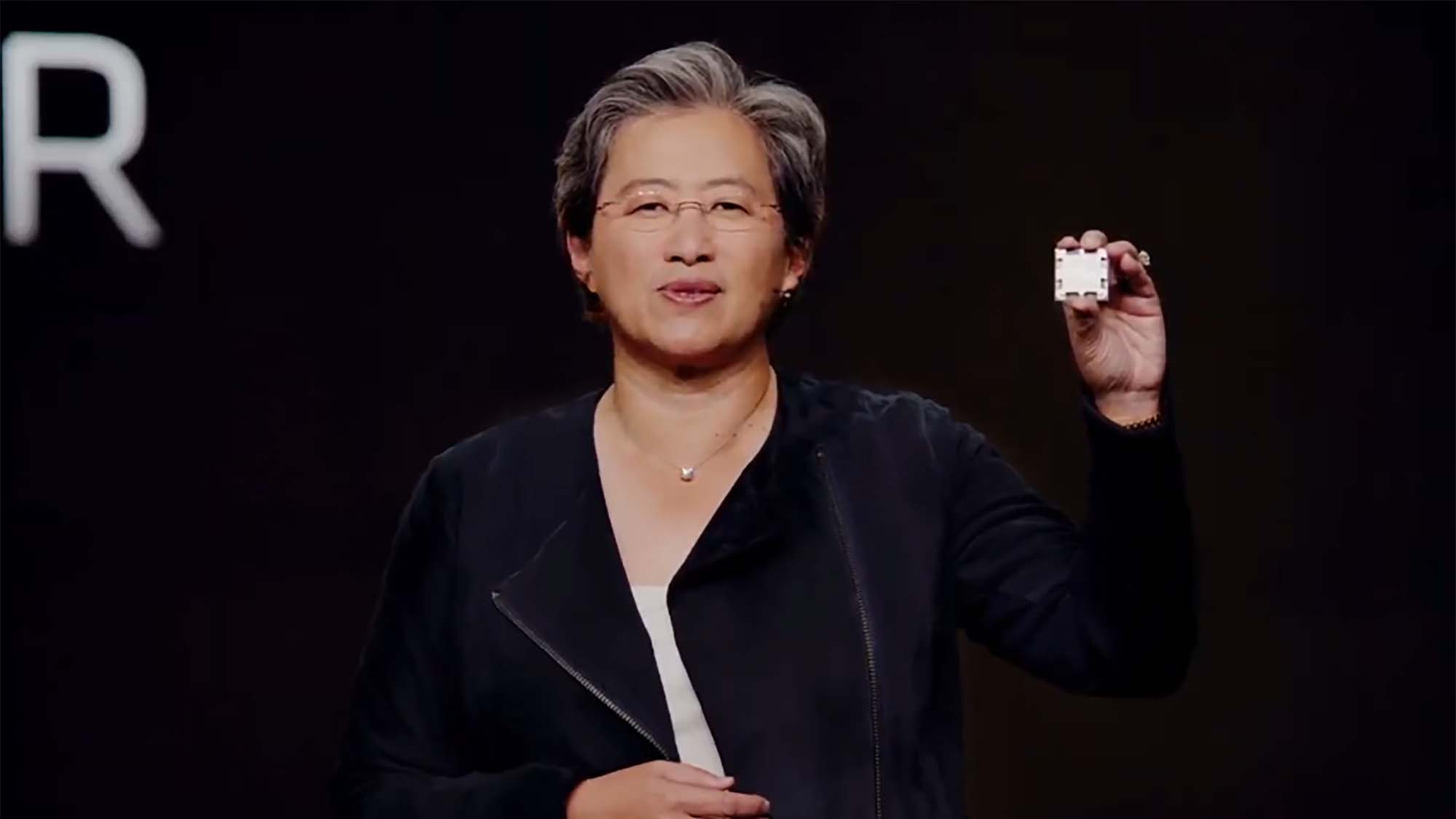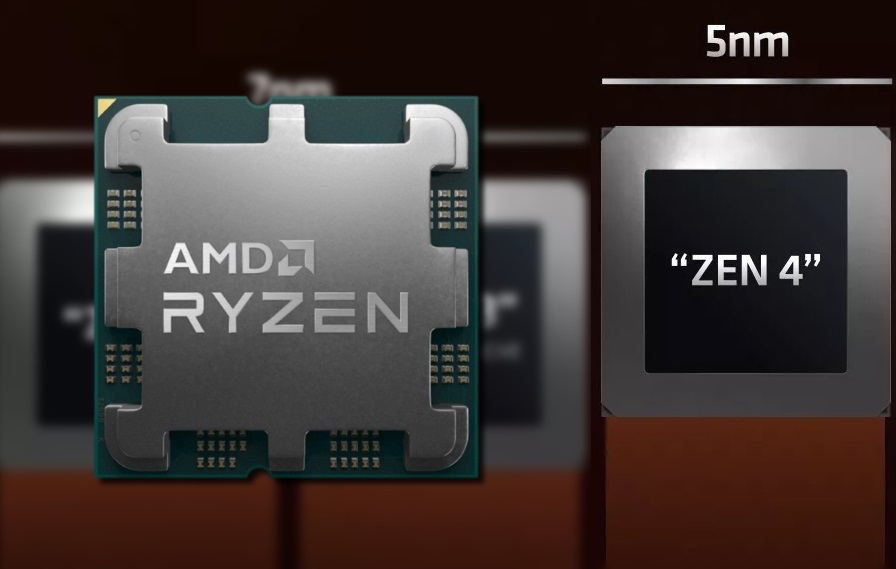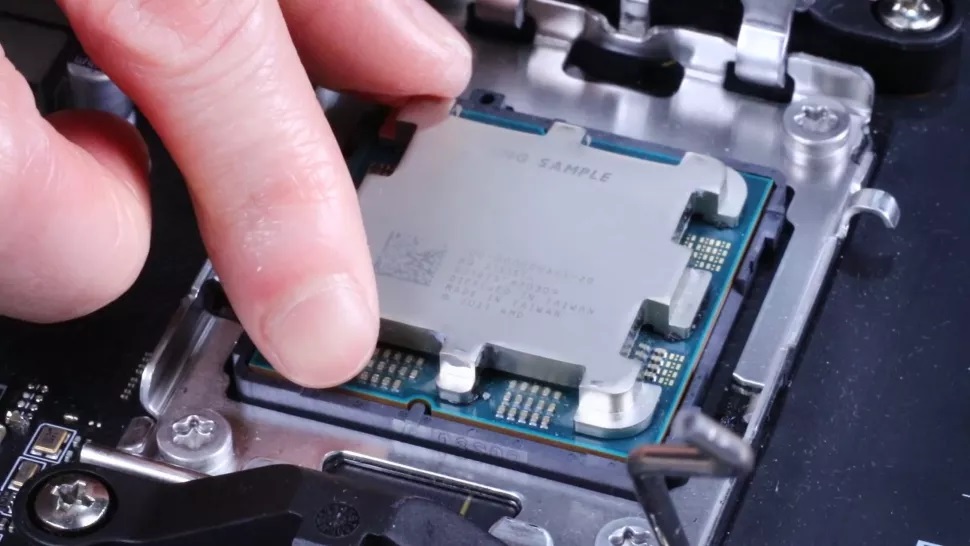The AMD Ryzen 7000 series processors are the next generation follow up to Team Red's powerful Zen 3 Ryzen 5000-series processors, and its release might not be as far away as you think.
The new chips will be utilizing AMD Zen 4 5nm architecture, which is a vital technological advantage in its rivalry with Intel, especially considering Team Blue's successful launch of the Intel Alder Lake series of processors in 2021.
Though there’s still limited information surrounding the Ryzen 7000 series, we did get a glance at a prototype chip during AMD CEO Dr. Lisa Su’s AMD CES 2022 keynote address, and gleaning from that address, as well as from other leaks and rumors, we have a strong idea as what to expect from the upcoming chips.
So what do we know about the AMD Ryzen 7000 series so far? Let’s dive in and find out.
AMD Ryzen 7000 Series: Cut to the chase
- What is it? AMD’s next-gen desktop processor series
- What will it cost? Most likely starting as low as $199 / £199 / AU$299 for Ryzen 5, and selling as high as $599/£599/AU$849 for Ryzen 9 chips
- When is it out? By the end of Q3 2022, most likely September
AMD Ryzen 7000 series: Release date

The rumor mill has consistently floated September 2022 as the most likely launch timeframe for the initial line-up of AMD's Zen 4 processors, with several sources pointing to Q3 2022 as the launch target, including Digitimes. And we've now had official confirmation from AMD that the launch will indeed be in Q3, meaning September at the latest.
However, before that rolls around, it has been reported that we'll get some kind of teaser or initial reveal, with AMD set to host an exclusive look at AM5 motherboards on August 5 that will possibly delve into the Ryzen 7000-series processors. If true, this event could be a major headache for Intel.
Then there was the recent update by AMD that added four chips to its resource library: the Ryzen 9 7950X, Ryzen 9 7900X, Ryzen 7 7700X, and Ryzen 5 7600X. This means that during the August 5 event, Team Red could reveal more official information about these chips, ahead of their likely launch in September. This would certainly represent a healthy starting line-up for AMD to provide some robust competition for Team Blue right now.
AMD Ryzen 7000 series: Specs

There have been plenty of rumors surrounding the specs of the Ryzen 7000-series lineup. According to a Benchleaks Twitter bot, it likely consists of an 8-core/16-thread chip as well as a 16-core/32-thread chip. It indicates that the L2 cache size is 1MB per core, which is double the Zen 3.
According to an unearthed benchmark result (which was quickly taken down), this 8-core CPU, which might have been the AMD Ryzen 7 7800X, has a reported boost speed of 5.2GHz compared to the 5800X’s boost of 4.7GHz. It may also have an integrated GPU which means it could come with built-in graphics. According to these same rumors, the processor has ‘GFX1036’ GPU solution that runs between 1,000MHz and 2,000MHz, with the codename pointing to it being RDNA 2.
One noted Twitter leaker suggested that the initial Zen 4 launch, when it does come, will be comprised of the Ryzen 9 7950X, Ryzen 9 7900X, Ryzen 7 7800X, and Ryzen 5 7600X, with other models most likely releasing after that. There’s plenty of talk too that these chips may introduce integrated Navi graphics, something that could spell trouble for Intel since this would improve the graphical capabilities of the Zen 4 APU, a boon for budget gamers and PC builders.
AMD Ryzen 7000 series: Performance

The biggest improvement to performance between the Zen 3 and Zen 4 chips is the latter’s use of the 5nm process. This upgrade coud result in as much as an 1.87x transistor density improvement over the TSMC 7nm process currently in use by the AMD Ryzen 5000-series. But while the density might have nearly doubled, that won't necessarily mean double the performance.
It also seems that the Ryzen 7000-series processors could see performance gains as high as 40%, and it’s possible that we could see as much as a 25% boost in AMD Zen 4's IPC performance. And, if AMD continues with PCIe 4.0, could have 28 lanes in total (compared to the current 24). And with talks of core frequency of 5.0GHz for every core, this could be a massive improvement over the Zen 3 performance-wise.
Of course until AMD actually shows us the chips in action, we can't say anything for certain.
AMD Ryzen 7000 series: What to expect
The launch of the AMD Ryzen 7000-series is vital to Team Red’s future competitiveness in processor production, as Intel continues to hold a dominant position, especially after Alder Lake's release put Team Blue back on top.
It’s predicted that AMD will lose 26% of its CPU marketshare revenue in 2022 due to the success of the Intel Alder Lake series. In general, the high-end PC market declined in popularity, and combined with how well received Intel's Alder Lake processors were, this confluence of forces contributed to AMD's loss of revenue.
In terms of the upcoming battle between the Raptor Lake series versus the Ryzen 7000-series, it seems that Intel has the upper hand. Not only will the former feature a significant boost in performance, Raptor Lake-S chips will support both DDR4 and DDR5 memory which gives it an even bigger advantage. It isn't known yet if AMD Zen 4 will continue to support DDR4 memory.
Then there’s the big.LITTLE architecture that Intel uses for its Alder Lake chips and plans on using it to power the upcoming Raptor Lake series of processors. This Arm-designed architecture works by pairing big "performance" cores with little, low-power "efficiency" cores. The former is reserved for active, intensive tasks, while the latter are designed to manage all of the various small but background tasks that can weigh down overall performance.
AMD has mocked this approach and is instead investing heavily in vertical chip stacking, which we first saw in our AMD Ryzen 7 5800X3D review in April 2022. This technology allows AMD to ‘stack’ cache memory on the processor die, which creates additional L3 cache for boosted performance in gaming and server processes. This tech will almost certainly spread to more of the Ryzen 7000-series lineup this go around, and it will be an interesting fight to see which of the two architecture moves end up paying off the most down the road.
from TechRadar - All the latest technology news https://ift.tt/i6WoBsZ
via

0 Comments: